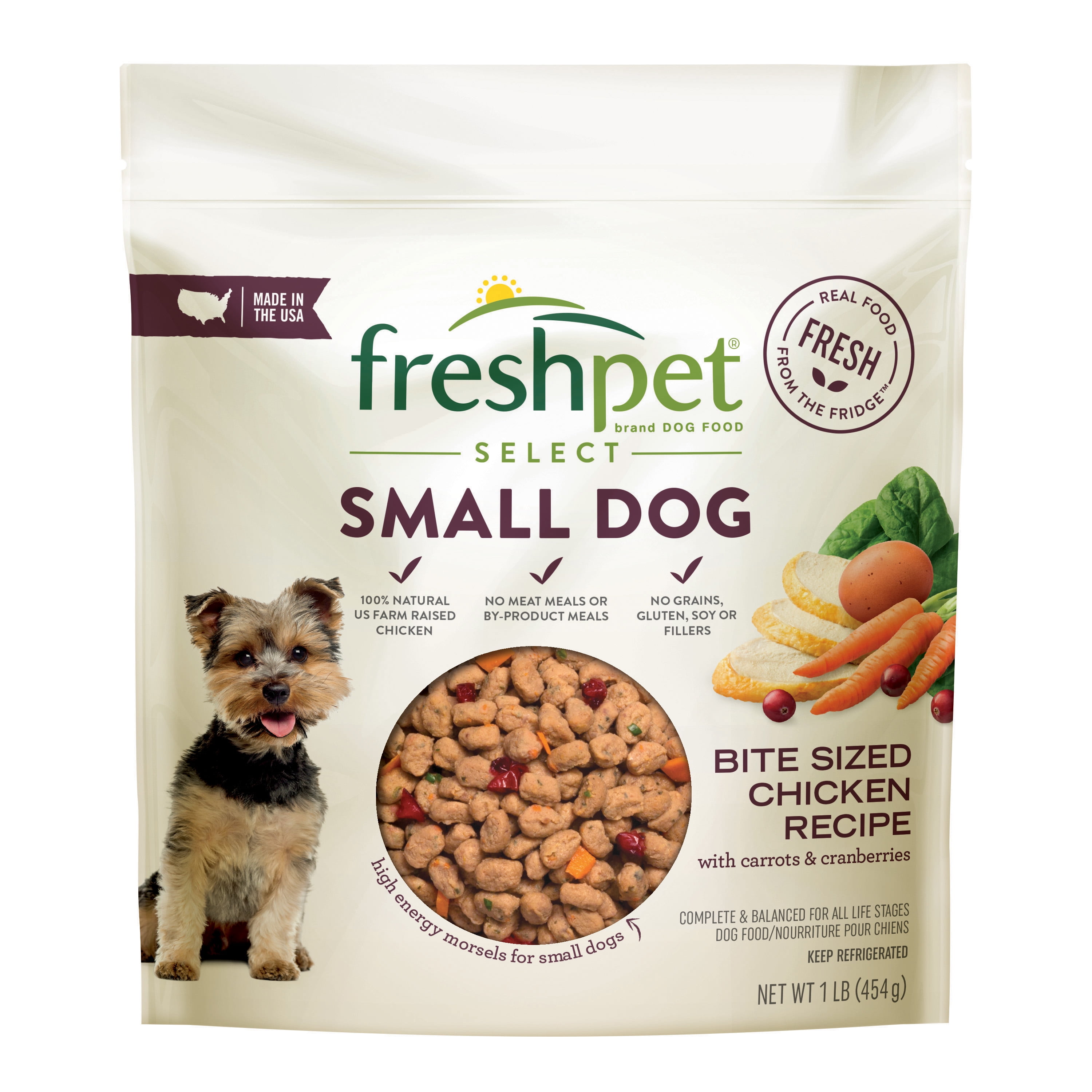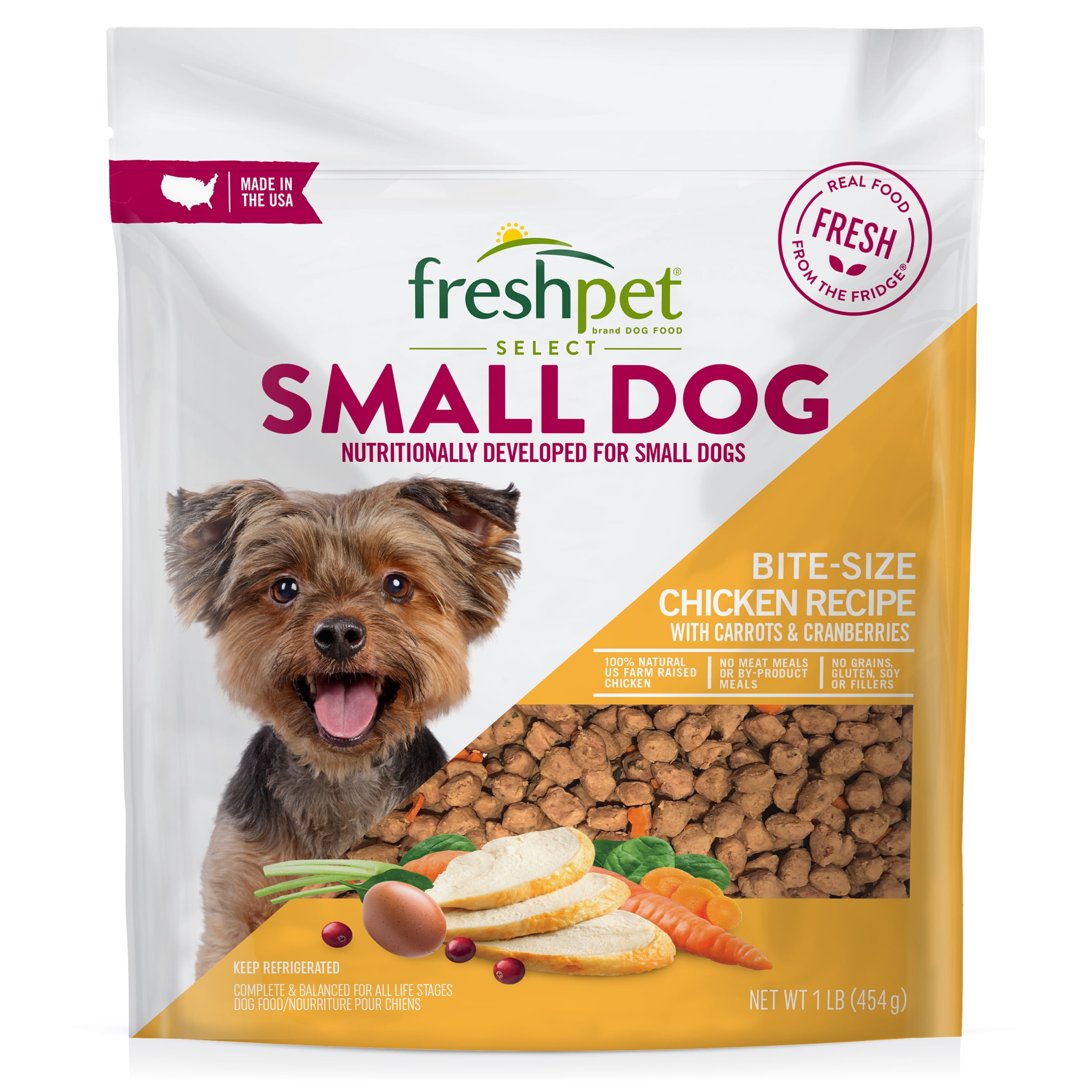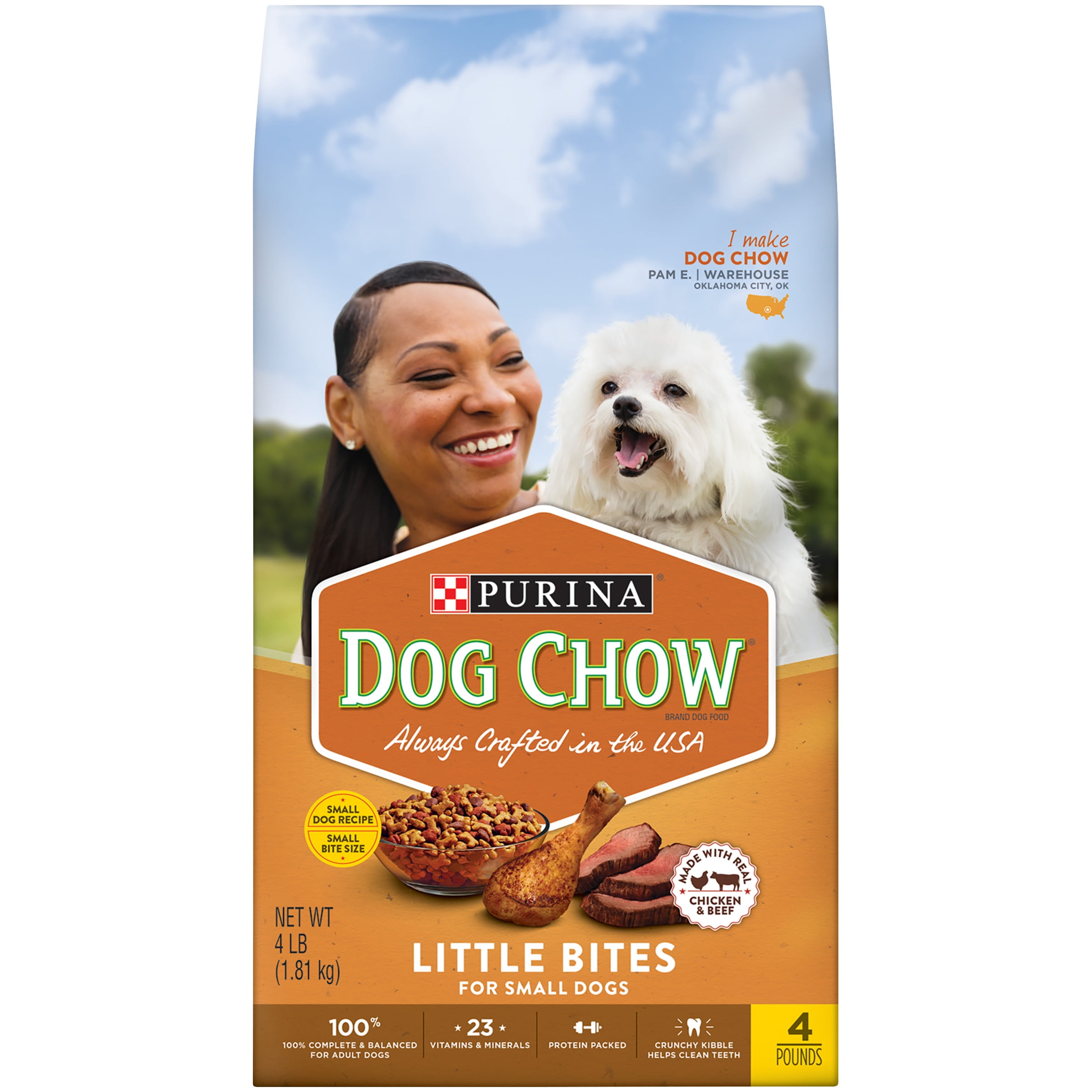Small dog food is a crucial aspect of providing optimal nutrition for our beloved canine companions. Understanding their unique nutritional requirements and feeding them appropriately ensures their health, well-being, and longevity.
This comprehensive guide delves into the specific needs of small dog breeds, exploring the types of food available, essential ingredients to look for, and feeding guidelines to follow. Additionally, we’ll address special considerations and provide tips for feeding small dogs effectively.
Nutritional Needs of Small Dogs
Small dogs have unique nutritional requirements that must be met to maintain their optimal health and well-being. Their small size and high metabolism demand a diet rich in essential nutrients, including proteins, fats, carbohydrates, vitamins, and minerals.
Meeting these nutritional needs is crucial for small dogs to thrive. A well-balanced diet provides them with the energy they need to stay active, supports their immune system, and promotes healthy skin and coat.
Protein
Protein is essential for building and repairing tissues, producing enzymes, and transporting nutrients throughout the body. Small dogs require a higher percentage of protein in their diet compared to larger breeds. A high-quality protein source, such as lean meats, poultry, or fish, should be the primary ingredient in their food.
Fats
Fats provide energy and support cell function. They are also essential for absorbing vitamins A, D, E, and K. Small dogs have a higher surface area-to-volume ratio than larger breeds, which means they lose heat more easily. A diet rich in healthy fats can help them maintain their body temperature and provide insulation.
Carbohydrates
Carbohydrates provide energy and fiber. Fiber is important for digestive health and can help regulate blood sugar levels. Small dogs can benefit from a diet that includes complex carbohydrates, such as brown rice, oatmeal, or sweet potatoes.
Vitamins and Minerals
Vitamins and minerals are essential for overall health and well-being. Small dogs require a balanced intake of vitamins A, B, C, D, E, and K, as well as minerals such as calcium, phosphorus, and iron. A well-formulated dog food will provide the necessary vitamins and minerals in appropriate amounts.
Types of Small Dog Food

Small dogs have unique nutritional needs that differ from larger breeds. Choosing the right type of food is crucial for their overall health and well-being. There are several types of small dog food available, each with its own advantages and disadvantages.
Wet Food
- Advantages:High moisture content, which is beneficial for hydration; softer texture, making it easier for small dogs to chew; more palatable than dry food.
- Disadvantages:Higher cost than dry food; can spoil quickly if not stored properly; may contribute to dental problems if not brushed regularly.
Dry Food
- Advantages:More cost-effective than wet food; longer shelf life; helps clean teeth and prevent plaque buildup.
- Disadvantages:Lower moisture content, which can lead to dehydration if not supplemented with water; harder texture, which may be difficult for some small dogs to chew; less palatable than wet food.
Semi-Moist Food, Small dog food
- Advantages:Combination of wet and dry food characteristics; softer than dry food but less moist than wet food; may be more palatable than dry food.
- Disadvantages:Shorter shelf life than dry food; higher fat content than wet food; may contain more fillers and additives.
Ingredients in Small Dog Food
Choosing high-quality ingredients is crucial for small dog food as it directly impacts their health and well-being. These ingredients provide essential nutrients, support optimal growth and development, and maintain a healthy weight.
Common ingredients found in small dog food include:
Protein Sources
- Chicken:A lean protein source rich in amino acids, essential for muscle development and tissue repair.
- Lamb:A highly digestible protein source that is gentle on the stomach, making it suitable for dogs with sensitive digestion.
- Fish:An excellent source of omega-3 fatty acids, which promote healthy skin and coat and support cognitive function.
Carbohydrate Sources
- Brown Rice:A complex carbohydrate that provides sustained energy, aids in digestion, and supports blood sugar regulation.
- Oatmeal:A soluble fiber that promotes satiety, aids in digestion, and helps maintain healthy cholesterol levels.
- Sweet Potatoes:A good source of dietary fiber, vitamins, and antioxidants, supporting digestive health and overall well-being.
Fats and Oils
- Chicken Fat:A highly palatable fat source that provides energy and essential fatty acids.
- Fish Oil:Rich in omega-3 fatty acids, which support brain function, skin and coat health, and reduce inflammation.
- Vegetable Oils:Such as sunflower or canola oil, provide essential fatty acids and support healthy skin and coat.
Other Important Ingredients
- Fruits and Vegetables:Provide antioxidants, vitamins, and minerals that support overall health and well-being.
- Probiotics:Beneficial bacteria that support digestive health and immune function.
- Vitamins and Minerals:Essential for optimal growth, development, and overall health.
Feeding Guidelines for Small Dogs
Determining the appropriate amount of food to feed your small dog is crucial for maintaining their health and well-being. Overfeeding can lead to obesity, while underfeeding can result in malnutrition and health issues. These guidelines will help you establish a tailored feeding plan based on your dog’s age, weight, and activity level.
Age-Specific Feeding Guidelines
Small dogs have different nutritional needs at various stages of their lives. Puppies require more frequent feedings and a higher calorie intake to support their rapid growth and development. Adult dogs typically need less food and a more balanced diet.
Senior dogs may have reduced appetites and require a diet tailored to their decreased activity levels.
Weight-Based Feeding Guidelines
The weight of your small dog is a key factor in determining the appropriate amount of food to feed. Smaller breeds generally require less food than larger breeds. Use a measuring cup or kitchen scale to accurately measure the amount of food you give your dog at each meal.
Activity Level-Based Feeding Guidelines
Active dogs have higher energy requirements than sedentary dogs. If your small dog is very active, you may need to increase their food intake to provide them with the necessary calories to sustain their activity level. Conversely, if your dog is less active, you may need to reduce their food intake to prevent weight gain.
Special Considerations for Small Dog Food

When selecting food for small dogs, specific considerations should be made to address potential allergies, sensitivities, and health conditions.
Allergies and Sensitivities
Small dogs are prone to allergies and sensitivities, which can manifest as skin irritation, digestive upset, or respiratory issues. Identifying the specific allergens or ingredients that trigger these reactions is crucial. Consider consulting a veterinarian for allergy testing or an elimination diet to determine the offending substances.
Specific Health Conditions
Certain health conditions may require specialized diets for optimal management. For example, dogs with kidney disease may benefit from low-protein diets, while those with heart disease may need low-sodium options. It’s essential to consult with a veterinarian to determine the most appropriate diet for a dog’s specific health needs.
Brands of Small Dog Food
Choosing the right brand of small dog food is crucial for your furry friend’s health and well-being. Numerous reputable brands offer high-quality products tailored to the specific nutritional needs of small breeds. This table showcases some of the most trusted brands, providing insights into their product lines, ingredients, and customer reviews:
| Brand | Product Lines | Ingredients | Customer Reviews |
|---|---|---|---|
| Hill’s Science Diet | Small Breed Adult, Small Breed Senior | Chicken, brown rice, barley, oats, carrots, apples | Highly rated for digestibility and skin health |
| Royal Canin | X-Small Adult, X-Small Senior | Duck, brown rice, oats, chicken fat, fish oil | Excellent reviews for taste and dental health |
| Purina Pro Plan | Small Breed Adult, Small Breed Senior | Chicken, brown rice, oatmeal, salmon, carrots | Well-received for energy levels and joint support |
| Blue Buffalo Wilderness | Small Breed Adult, Small Breed Senior | Deboned chicken, brown rice, sweet potatoes, blueberries, cranberries | Popular for its grain-free formula and high protein content |
| Eukanuba | Small Breed Adult, Small Breed Senior | Chicken, lamb, brown rice, oatmeal, carrots, apples | Appreciated for its balanced nutrition and healthy skin and coat |
Homemade Small Dog Food
Preparing homemade meals for your small dog can be a rewarding experience that allows you to control the ingredients and ensure their nutritional needs are met. Here’s a guide on how to make homemade small dog food:
Ingredients
- Protein source:Lean meats like chicken, fish, or beef
- Carbohydrates:Brown rice, sweet potatoes, or oatmeal
- Vegetables:Carrots, broccoli, spinach, or pumpkin
- Fruits:Apples, blueberries, or bananas (in moderation)
- Healthy fats:Olive oil, coconut oil, or flaxseed oil
- Supplements:Calcium, phosphorus, and vitamins as recommended by your veterinarian
Steps
- Cook the protein source and carbohydrates separately.
- Chop or blend the vegetables and fruits.
- Combine all ingredients in a large bowl and mix well.
- Add supplements as recommended by your veterinarian.
- Divide the mixture into individual portions and store in airtight containers.
Benefits
- Control over ingredients and quality
- Tailor the diet to your dog’s specific needs
- Avoid potential allergens or sensitivities
Challenges
- Time-consuming to prepare
- Requires knowledge of canine nutrition
- Ensuring a balanced and complete diet
Additional Tips for Feeding Small Dogs

Providing proper nutrition to your small dog is crucial for their well-being. Here are some additional tips to ensure your furry friend receives the best care:
Regular Feeding Schedule
Establish a consistent feeding schedule and stick to it as much as possible. This helps regulate your dog’s digestive system and prevents them from overeating or skipping meals.
Fresh Water
Always provide your dog with access to fresh, clean water. Small dogs are prone to dehydration, so ensuring they have plenty of water is essential for their health.
Monitor Weight
Regularly monitor your dog’s weight to ensure they are maintaining a healthy weight. Small dogs are prone to obesity, which can lead to health problems.
Veterinarian Consultation
Consult with your veterinarian for personalized advice on your dog’s diet and feeding plan. They can assess your dog’s individual needs and provide guidance to ensure they receive the optimal nutrition.
Clarifying Questions
What are the key nutritional needs of small dogs?
Small dogs have higher metabolic rates and require a diet rich in protein, carbohydrates, and fats. They also need essential vitamins, minerals, and antioxidants to support their overall health.
What are the different types of small dog food available?
Small dog food comes in wet, dry, and semi-moist varieties. Wet food has a higher moisture content, while dry food is more concentrated and provides more dental benefits. Semi-moist food offers a balance between the two.
How much should I feed my small dog?
Feeding amounts vary depending on age, weight, and activity level. Generally, small dogs should be fed 1/4 to 1 cup of food per day, divided into two or three meals.
What are some special considerations for small dog food?
Allergies, sensitivities, and specific health conditions may require special considerations in choosing small dog food. Consult with your veterinarian to determine the best options for your pet.
